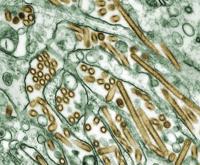(WSIL)---Lead poisoning may seem like a thing of the past, but it is still very real.
"It's a silent killer," says Dr. Blaine Eubanks, a pediatrician from 九游体育 Illinois Healthcare. "Lead poisoning is common and under diagnosed. So we know that there are lots of children that are exposed to lead from all kinds of sources."
The problem with lead poisoning is that it shows almost no symptoms until years after exposure.
"They start to develop developmental problems, learning attention problems, heart problems, kidney problems. And that comes from exposure that occurred years before," said Eubanks.
And unless lead is detected early, options are limited.
"So it has no other symptoms for years and unless we diagnose it early, there is absolutely nothing we can do about it," said Eubanks.
Lead exposure can happen anywhere, but is most common in places where children live in older homes.
"It can really happen to anyone, anywhere. And everyone in our area, in our zip code, is considered high risk," said Eubanks.
Children typically get a routine check up when they are between 9 and 12 months old.
It is at these check ups that the screening for lead poisoning usually happens.
But from April 2019 to April 2020, lead testing in Illinois dropped 73%.
Because of a national lack of well checks, the CDC estimates that over 9,000 children with lead in their blood went undetected.
"Right now, everyone's focus is on COVID. And that is probably the top health priority right now, making sure that you're masked and gloved and things like that. But we need to have children in for preventative care to prevent other problems which are just as real," said Eubanks.














